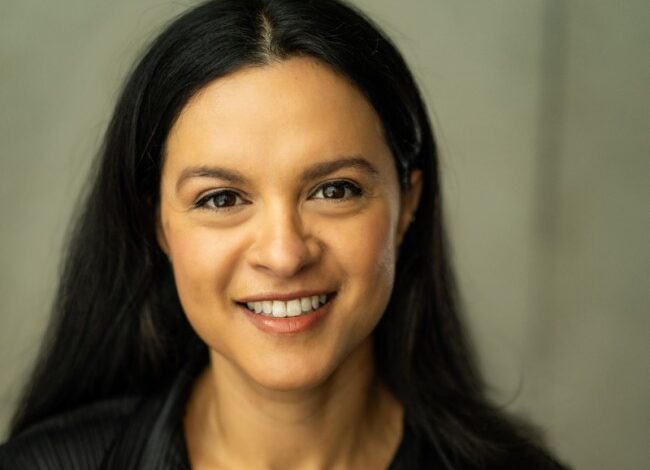Farhana Bhula: Charting Her Rise to Director of Film4 and Her Latest Milestones

In the competitive realm of UK film and television, Farhana Bhula has steadily built a reputation as a visionary, thoughtful executive deeply committed to nurturing creative voices. Her appointment as Director of Film4 in September 2025 marked a significant milestone in both her career and for Film4 itself. In this article, we explore her background, career trajectory, notable achievements, and the most recent developments that underscore her growing influence in the British screen sector.
Early Life, Education & Foundations
Cambridge and a Literary Lens
Farhana Bhula holds both a BA in Modern Languages and an MPhil in European Literature & Culture from the University of Cambridge. These academic credentials suggest a foundation steeped in language, culture, narrative, and critical thought—elements that naturally inform the creative decisions she would later make in film development and commissioning.
Training in Producing
In addition to her Cambridge education, Bhula attended the London Film School, participating in its Fast Forward Producing programme. This kind of training is designed to bridge the gap between creative ambition and industry reality—equipping emerging producers with insight into financing, market dynamics, and the practical demands of bringing work to screen.
Her combined experience in humanities and hands-on producing education helps explain her holistic approach: she balances respect for artistry with awareness of industry constraints.
The Career Journey: From Assistant to Director
Early Roles & Growth
Bhula’s industry path began with roles such as Development Assistant (e.g. Endor Productions), progressing to Associate Producer at Big Rich Films, and then to development executive roles at companies like Endor / Little Island Productions. These formative positions exposed her to script filtering, packaging, creative feedback, and early-stage production hurdles.
From 2017 to 2019, she served as Head of Development, Film & TV at Wildgaze Films, demonstrating a capacity to lead creative portfolios and guide multiple projects simultaneously.
British Film Institute (BFI) Years
From early 2019 through 2021, Bhula held development and production executive roles at the British Film Institute (BFI)—most notably as Senior Development & Production Executive. Her BFI tenure coincided with a period of increasing push by UK cultural bodies to support diverse voices, new forms, and innovation in low-budget filmmaking. Her work there solidified her networks, reputation, and track record in supporting emergent talent.
Joining Film4 & Rising Through the Ranks
In January 2022, Bhula joined Film4 (Channel 4’s feature film arm) as a Senior Commissioning Executive. By March 2023, she was promoted to Head of Creative—a role in which she helped steer Film4’s slate, blending established filmmakers with new voices.
During that time she oversaw and championed films such as How to Have Sex (Molly Manning Walker) and All of Us Strangers. Bhula was instrumental in initiatives like Future Takes, a programme launched with the BFI to identify and support promising emerging creative talents.
Her growing influence and leadership within Film4 culminated in her being named Director in September 2025, following a period during which she stepped into interim leadership after the departure of her predecessor.
Key Achievements & Projects
Championing Emerging Voices
One of Bhula’s most lauded contributions is her commitment to fresh, less conventional voices. Projects she supported include How to Have Sex, Rose of Nevada, The History of Sound, and H is for Hawk. Under her stewardship, Film4’s slate has continued to include risk-taking, artistically ambitious films that align with the UK’s cultural film ambitions.
Future Takes & Talent Development
As Head of Creative, she was a driving force behind Future Takes, a BFI-backed development programme for upcoming filmmakers. Through it, she has helped nurture new talent and strengthen pipelines between film schools and the industry. This reinforces Film4’s role not just as a producer, but as a cultivator of UK screen talent.
Leadership and Industry Stewardship
Upon her promotion to Director, she became one of a small but growing number of women of South Asian heritage leading key UK film institutions. Her leadership marks a shift toward more representative decision-making at high levels.
Latest Updates & Recent Developments
Permanent Appointment as Director of Film4
In September 2025, Farhana Bhula was publicly appointed Director of Film4 after serving in an interim capacity since July. She officially succeeds Ollie Madden, who moved to lead UK film operations at Netflix. This appointment reflects both her internal momentum and external recognition of her capabilities.
This announcement was covered in trade outlets, heralding a new chapter for Film4 under her direction.
Joining NFTS Board of Governors
In September 2025, Bhula also was appointed to the Board of Governors of the National Film and Television School (NFTS). This role places her in a strategic position to influence film education and industry training pathways in the UK.
Her priorities are understood to include fostering stronger connections between the school and the industry, supporting emerging filmmakers, and ensuring the curriculum remains responsive to evolving industry landscapes.
Slates & Influence
Under Bhula’s leadership at Film4, the slate continues to reflect risk, diversity, and bold storytelling. She has spoken publicly about the necessity for film institutions to adapt to shifting structures—streaming, hybrid models, and changing audience behaviors—while preserving space for creativity and cultural resonance.
She is also expected to play a key role in how Film4 responds to emerging industry challenges, including funding pressures, evolving distribution models, and the tension between commercial viability and creative innovation.
Why Farhana Bhula’s Leadership Matters
Representation & Inspiration
In a sector historically dominated by certain demographics, Bhula’s presence at the top echelon offers inspiration to underrepresented producers, filmmakers, critics and cultural entrepreneurs. She represents a pathway for those from diverse backgrounds to shape the cultural story of British cinema.
Balancing Art & Audience
Her blend of literary/cultural education and experienced producing instincts positions her uniquely to navigate the tension between artistic ambition and financial sustainability—an essential balance in today’s film landscape.
Strengthening UK Film Ecosystem
By serving on bodies like NFTS, she helps tighten the feedback loop between education and industry. Her involvement in talent development schemes ensures emerging creators are neither starved of opportunity nor cut off from institutional support.
Challenges & Outlook
Funding & Market Pressures
The UK film sector, like many national industries, is under pressure from reduced public funding, global streaming competition, and changing consumption habits. Bhula will need to negotiate these pressures while ensuring that creative risk is not stifled.
Maintaining Identity amid Scale
As Film4 evolves under her leadership, preserving the balance between bold, culturally rooted film and broader commercial appeal will be a constant tension. Her decisions will influence Film4’s reputation—does it remain a champion of daring cinema, or shift toward more mainstream output?
Building Sustainable Talent Pipelines
Her ambition to deepen industry–education links (evident in her NFTS appointment) will only succeed if effective programmes, resources, and mentoring are scaled meaningfully. Ensuring that new voices don’t just emerge, but sustain, will be a key test.
Final Thoughts
Farhana Bhula stands at a turning point—now helming one of Britain’s most iconic film institutions, and simultaneously helping shape film education at the national level. Her past shows she is not just a steward, but a builder; someone who invests in stories and creators.
Her latest roles—Director of Film4 and Governor at NFTS—are more than titles. They signal her intention to shape both what UK cinema looks like and who gets to make it. In that dual posture lies her potential legacy: not just in commissioning memorable films, but in changing the rules of access, representation, and innovation in British filmmaking.



